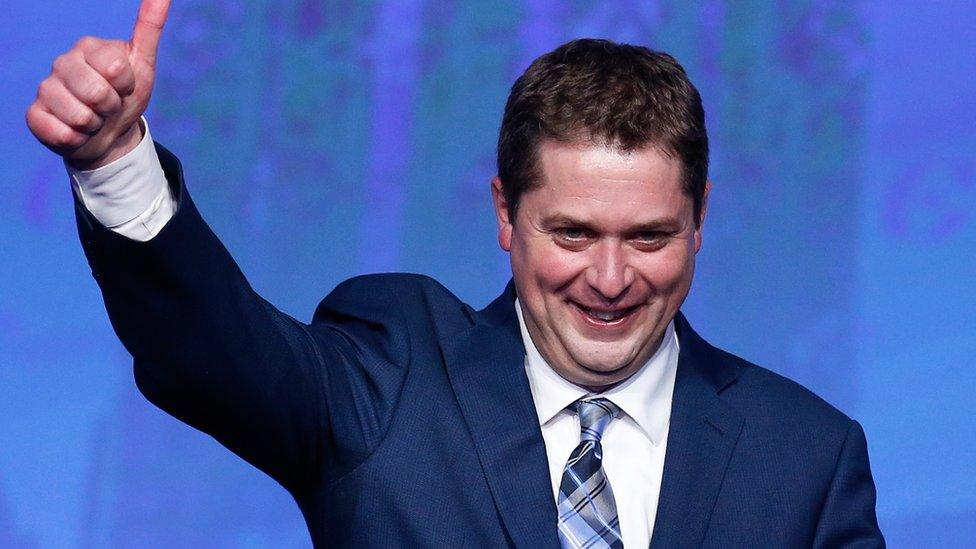Andrew Scheer: Canadian Conservative leader resigns
- Published
"Time to put my family first" - Andrew Scheer's resignation speech
Canada's Conservative leader Andrew Scheer is stepping down after facing criticism for failing to oust Liberal Prime Minister Justin Trudeau in October's election.
He told the House of Commons it was "one of the most difficult decisions I have ever made".
Mr Scheer said he would stay on in his role until the party chooses a new leader.
He only became leader in May 2017 in a razor thin victory against 12 rivals.
Mr Trudeau thanked Mr Scheer for "his dedication and service" and said he understood the many sacrifices made by the families of politicians. "I wish him all the very, very best in his next steps."
Why is he resigning?
Making the announcement on Thursday, Mr Scheer, 40, spoke about the sacrifices made by his family for his political career.
The decision to resign was not made lightly, he said. "But in order to chart the course ahead, this party, this movement needs someone who can give 100 per cent to the efforts.
"And after some conversations with my kids and my wife and loved ones, I felt it was time to put my family first."
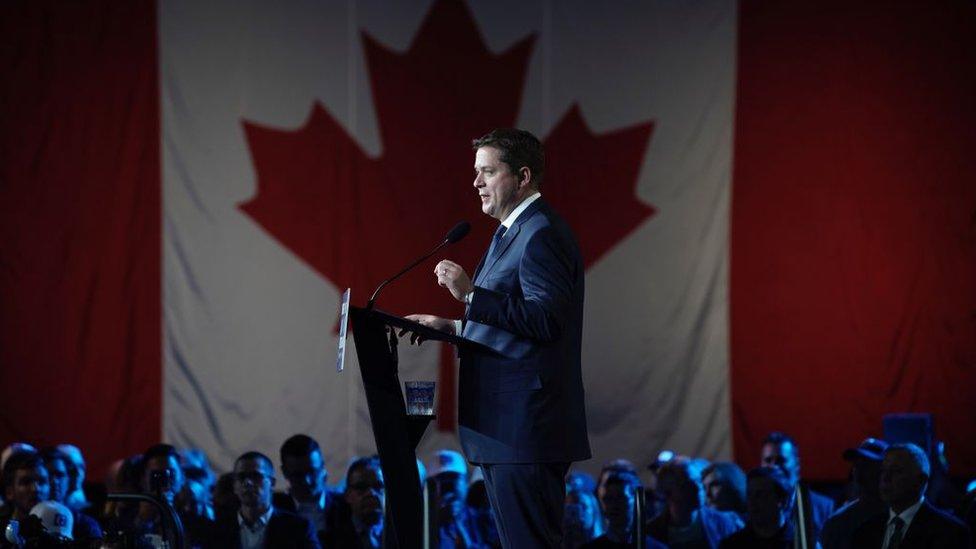
Mr Scheer speaks to reporters after his October defeat
He said the strain of an election had taken a toll on five children and wife, Jill, whom he called "heroic".
Mr Scheer has served in federal politics since 2004 since being elected to the House of Commons at age 25.
Is private school tuition anything to do with it?
Mr Scheer's resignation came amid revelations, first reported by Global News, that the Conservative Party had helped cover the cost of private school for the Conservative leader's children.
Conservative Party Executive Director Dustin van Vugt said in a statement the party had offered to reimburse some of the costs associated with being party leader and relocating Mr Scheer's family to Canada's capital, "as is the normal practice for political parties".
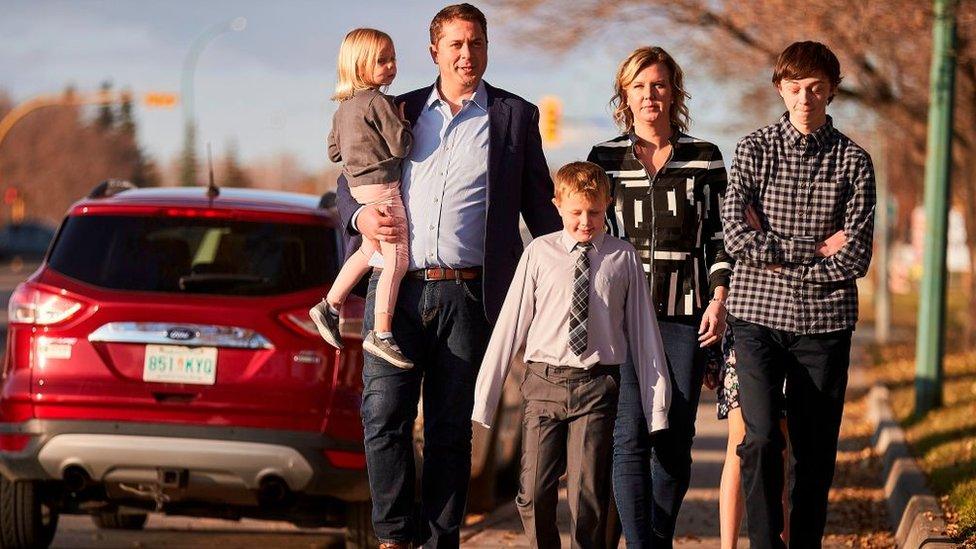
Mr Scheer thanked his wife, Jill, for her "heroic" efforts during his time as leader
"Shortly after Mr Scheer was elected leader," Mr van Vugt said, "we had a meeting where I made a standard offer to cover costs associated with moving his family from Regina to Ottawa.
"This includes a differential in schooling costs between Regina and Ottawa. All proper procedures were followed and signed off on by the appropriate people."
Mr van Vught's office insisted that Mr Scheer's resignation was not related to the reimbursements.
News of the tuition assistance divided Conservatives. Many defended Mr Scheer, while others decried the funding as inappropriate.
"There's nothing proper or appropriate about having party members' money used to pay for someone's children's private school education," Conservative strategist Kory Teneycke told the Globe and Mail newspaper. "There's nothing normal about that."

Final nail in the coffin
Analysis by Robin Levinson-King, BBC News, Toronto
Although the precise timing of Mr Scheer's departure may come as a surprise to many, few could say that they expected him to hold on to power for much longer.
Mr Scheer has been struggling to rally the party behind him since the October election.
Although he vowed to stay on and fight, the voices clamouring for his removal had been growing louder. Several party members had mounted a public campaign for his ousting, while a veteran MP who had served under Stephen Harper declined a position in Mr Scheer's shadow cabinet.
News that the party had been partly paying for his children's private school did not go over well with the base, who favour small-government and fiscal frugality. It proved to be the final nail in the coffin.

How did Scheer do?
In October's election, Mr Scheer led his Conservatives to a 22-seat bump in the House of Commons and edged out the Liberals in the popular vote. Just days before the election, some polls projected the Conservatives would win the most seats.
But the leader remained dogged by questions about his position on issues such as abortion rights and same-sex marriage, which are popular in Canada.
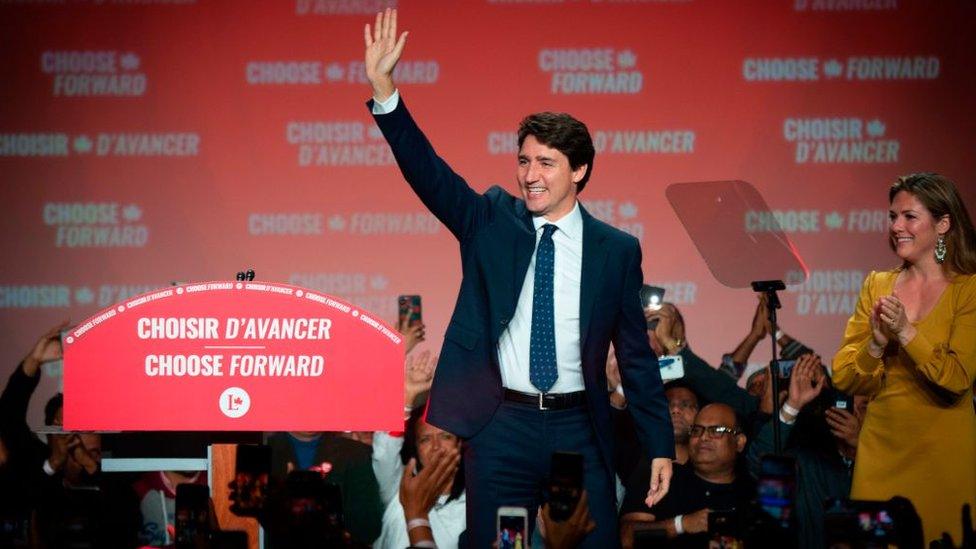
Mr Scheer faced a disappointing loss to Prime Minister Justin Trudeau in October's federal election
Critics of Mr Scheer say he failed to capitalise on the prime minister's stumbles while in office and on the trail, namely the SNC-Lavalin scandal, and pictures that emerged of Mr Trudeau in blackface.
Still, the party picked up seats in New Brunswick, Ontario and British Columbia and swept the prairies, leaving Mr Trudeau without any party members from Canada's oil-producing provinces Alberta and Saskatchewan.
What's next for the party?
Mr Scheer will remain on as a member of Parliament. He said the Conservative Party will now begin steps towards electing a new leader.
Many had expected Mr Scheer to hang on as leader at least until Conservatives gather in Toronto for their biennial convention next April.
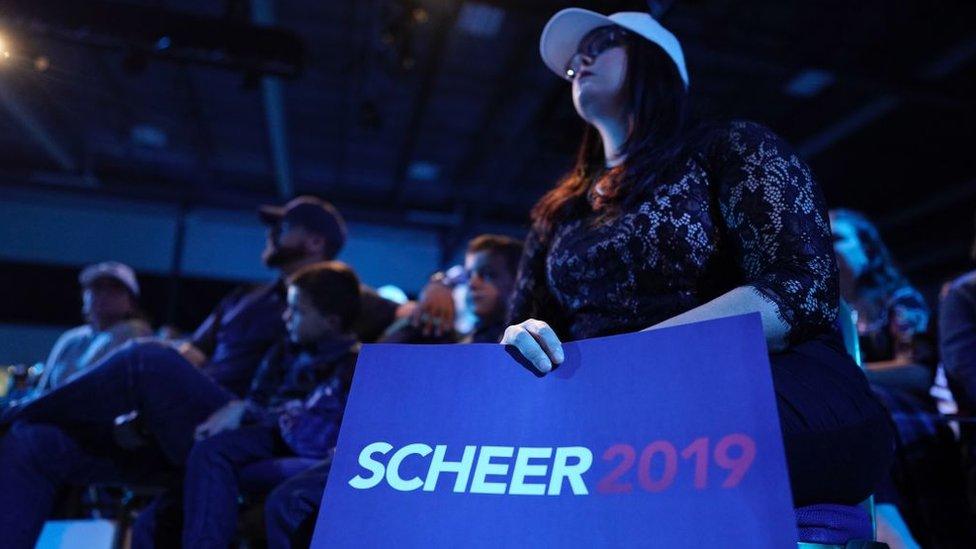
On Thursday, Mr Scheer called for party unity and vowed the next leader would have his full support.
"The party that we've all built together is far too important for one individual.
"Our party is not a cult of personality, it's not shaped by whoever's name is on the masthead but by the hundreds of thousands of Conservatives who pound in lawn signs, sit on their riding associations and donate a few dollars every month."
- Published23 August 2018
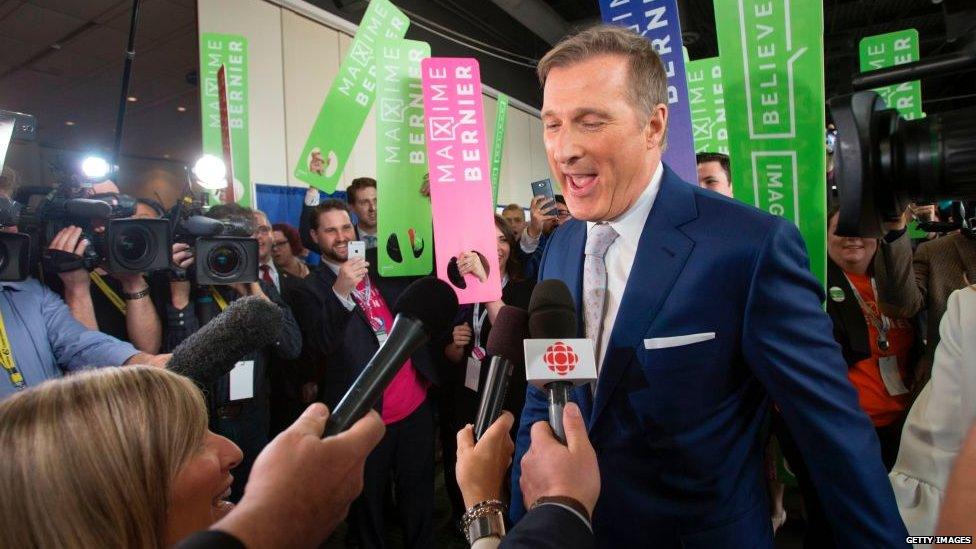
- Published11 October 2019

- Published20 September 2021
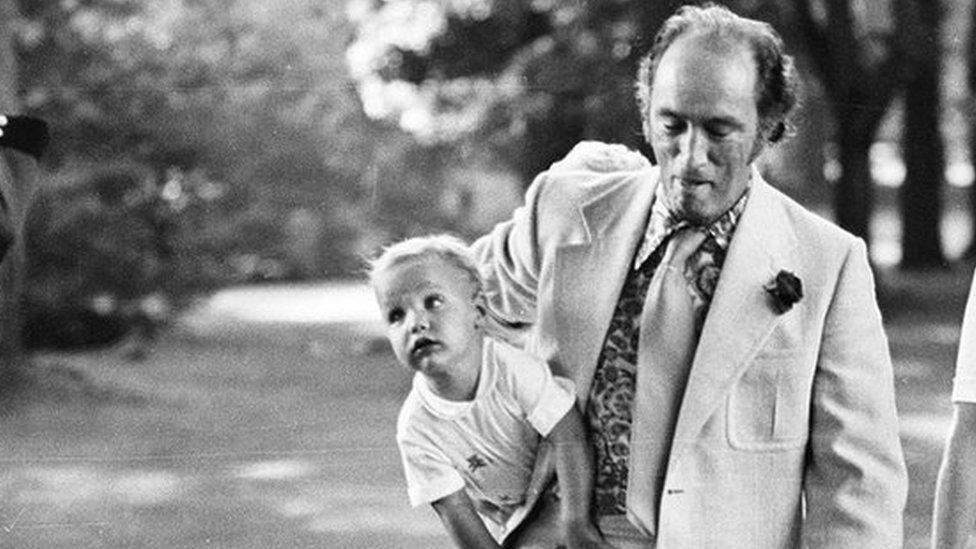
- Published21 October 2019
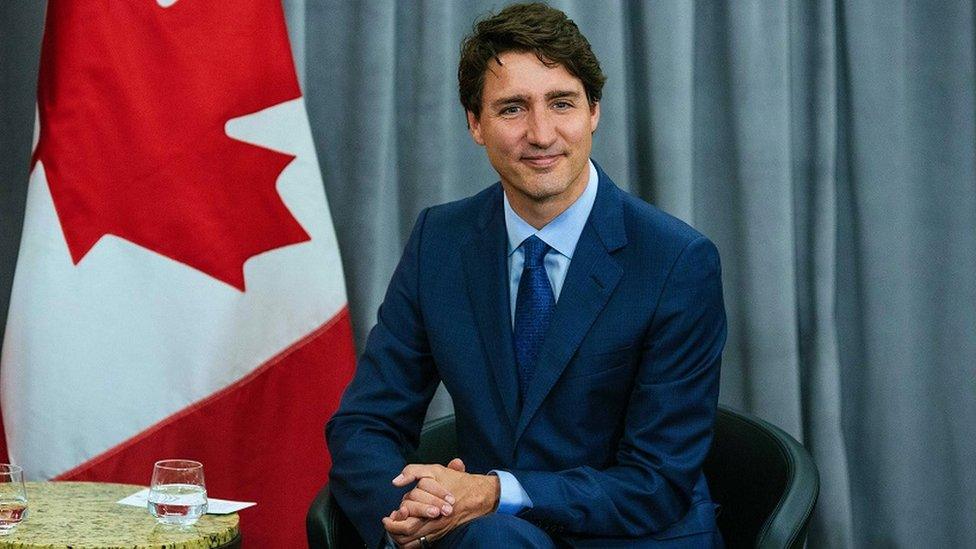
- Published4 October 2019
